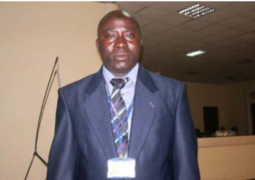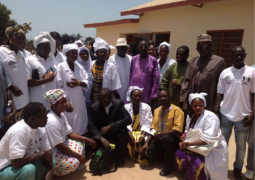The trail magistrate delivering his judgment stated that the accused person was arraigned before the court on 7 November 2013, and charged with making a false declaration.
The particulars of the offence stated that on 28 October 2013, in the Republic of the Gambia, he unlawfully caused to be made a false statement or false representation to be made to an immigration officer by applying for clearance, and thereby committed an offence, to which he pleaded not guilty.
The trial magistrate pointed out that as far as he was concerned there are two questions for determination - whether the accused person unlawfully caused to made a false declaration to an immigration officer by applying for entry clearance, or whether the prosecution has sufficiently proven its case against the accused to warrant a conviction based on the entirety of the evidence before the court.
“We know without doubt that it is not an offence to apply for entry clearance to the director-general of immigration,” he said.
In fact, that is what the law requires, he said.
However, was the information given by the accused for the entry clearance wrong or false in part or in whole, he asked.
“As far as I am concerned, there is no iota of evidence to support the allegation against the accused person,” the trial magistrate said.
He went on: “Assuming without conceding, as the prosecution alleged, that the accused person made a false declaration to an immigration officer by applying for entry clearance, where is the evidence?”
“Certainly, I have not seen anything to support that, and the only bit of evidence even though very small that remotely linking the accused to the offence, is found in the accused person’s cautionary statement made to the police.
The magistrate said he had look at the accused person’s letter of application address to the DG immigration seeking clearance for the Lebanese and Syrian nationals, but it looked normal to him.
He finally acquitted and discharged the accused person.




